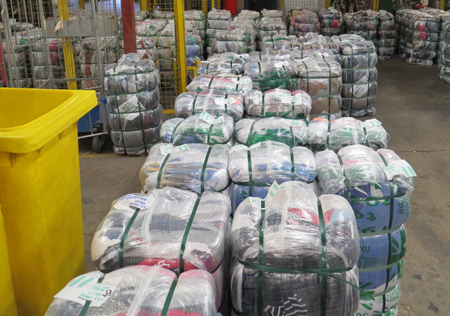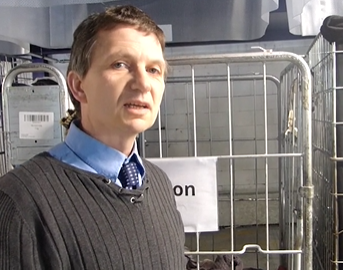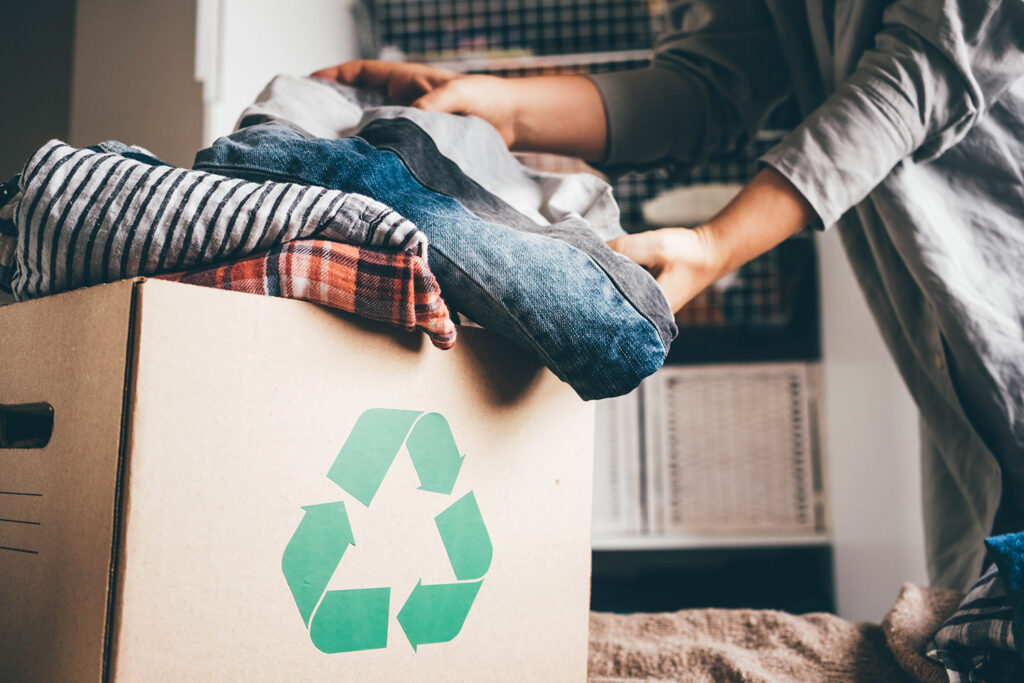And, the Textiles Recycling Association (TRA) issued a position paper yesterday afternoon (19 October) urging the government to ensure that the review on Extended Producer Responsibility (EPR) for clothing and textiles, a commitment in the Waste Strategy for England 2018, is completed by 2022.

Prices
The session was kicked off by the textiles division president Martin Böschen, from the Swiss-based textile recyclers Texaid.
He explained that while recent months had brought some improvement in demand and payments for sorted goods, prices were still “15-25% lower than before Covid-19”.
Capacity
He went on to say that demand for recycled goods “had not picked up at all”, adding that many sorting companies in Europe were working “at reduced capacities” while stocks of originals held in warehouses were “one and a half to two times higher than normal at this time of year”.
Lisa Jepsen of US-based Garson & Shaw reported that most companies in the USA and Central America had seen their sales nosedive in the early stages of the pandemic but these had now returned to approaching normal levels. Stocks had been quick to fall once charity shops reopened, she added.
Resources charity WRAP also said last week that it understand prices are slowly “bouncing back”, to around £130 a tonne for some textile bank material (see letsrecycle.com story).
Taxes
Reporting on the Bulgarian market, Yavor Pandov from the country’s Association of Recyclers and Traders of Second Hand Clothes (ARTSHC) confirmed that volumes had returned to around 90% of pre-Covid levels. He said Africa and Pakistan had resumed their regular purchasing levels “in terms of quantities, not in terms of price”.
Mr Pandov went on to confirm that a tax on imported second-hand clothing was still being discussed within his country’s parliament and now seemed likely to be imposed despite on-going opposition from the ARTSHC.
Back in 2018, the association had received support from BIR in fighting the proposal, with the world association arguing that a tax would harm domestic consumers and would prevent the Bulgarian government from meeting the recycling targets for textiles set down in the EU’s revised Waste Framework Directive.
EPR
BIR Textiles Division’s general delegate Alan Wheeler, director of the UK’s TRA, told the webinar that a tax on used clothing “defeats the whole point of EPR”.

In its position paper, issued separately to the webinar, the TRA cited the huge environmental and social impacts associated with the UK’s clothing supply chain, making the case for completing this review at the earliest opportunity compelling and absolutely necessary.
Mr Wheeler said: “The existing fashion industry model of take, make, use and dump needs to be overhauled now into a radical and new circular economy for the fashion industry. What we are proposing is a starting point from which the whole sector can seek to build a fair an equitable EPR framework, that should not only benefit everyone involved in the entire supply chain, but in the wider global society and environment”.
The full position paper can be read here.








Subscribe for free